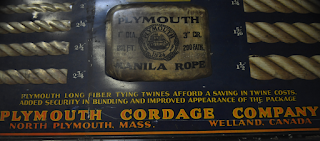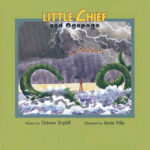
This is my second post about car brands, often named for inventors or developers. “Automobile” is a French-coined word adopted by manufacturers.
In 1909, when it was clear automobiles were not a passing fad, eight Detroit businessmen partnered to make and sell cars for less than $1,000 (equal to around $26,000 today). That company was Hudson Motors, named for Joseph L. Hudson, entrepreneur founder of Hudson’s Department Stores.
DeSoto, offered by Chrysler in 1929, was named after Spanish explorer, Hernando deSoto.
The first wheeled Dodge was a bicycle. The Dodge brothers’ reputation for craftsmanship led to making car parts. In 1902 they won a contract for 3,000 transmissions for the first Olds car. Henry Ford was so impressed, he teamed up with them and Dodge produced all parts for Ford’s 1903 Model A Runabout except the wheels and cabins. For the next 11 years both companies partnered and prospered.
The name Jeep probably comes from World War II slang for “new, unproven recruits or unproven vehicles.” Others say it’s a contraction of G.P., General Purpose.
Nash Motors made cars in Wisconsin from 1916-1937. Until 1954, they were the automotive branch of Nash-Kelvinator, bringing innovations like the heating-ventilation system still used today, unibody construction in 1941, seatbelts in 1950, the first US compact cars in 1950, and muscle cars in 1957.
Plymouths, by Chrysler, introduced maybe the most famous engine in car history. They were named after Plymouth Binder Twine, produced by Plymouth Cordage, a twine with high popularity among farmers.
Studebaker was an Indiana wagon and automobile manufacturer. Begun in 1852 as Studebaker Brothers Manufacturing, they produced wagons for farmers, miners, and the military, and later began automotive production in 1902 with electric cars, and in 1904 with Studebaker Automobile Company gasoline vehicles.
Jaguar is considered the best ever name for a sports car, winning above other animal names suggested by a British ad agency in 1935. Ford scored with Mercury, the fleet-footed messenger of the gods in Greek and Roman mythology, also the source for Lincoln’s Zephyr, god of the wind.
Many current names were not originally part of the auto industry. Toyota came from Toyoda Loom Works in Japan. When their family began car production, they changed the “d” to a “t”, more elegant in Japanese script.
Mechanic Soichiro Honda produced motorized bicycles after World War II and then graduated to cars.
Volkswagen resulted from Adolf Hitler’s call for a car for the common folks, meaning “people’s car” in German. The prototype was earlier known as “Strength through Joy.”
There are many interesting origin stories beyond this partial list. Some people select car makes or model based on their personalities. I name the cars I personally own––do you? My Nash Rambler years back was “Laplander” because it “lapped up the miles.” I began a list of suggested model names once when stuck in traffic, but haven’t sent it anywhere. Great current model names like Voyageur, Ram, and Sequoia are clear winners. Due to size, we might associate Hummer with Guzzler.
So what’s your answer? If starting companies to manufacture products, do we name them for ourselves? Or use terms emphasizing product qualities?
Now, please suggest the name for the next dream car, or any product of your choice.






Leave a Reply